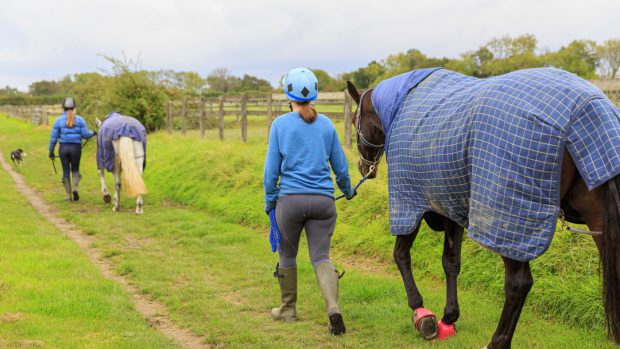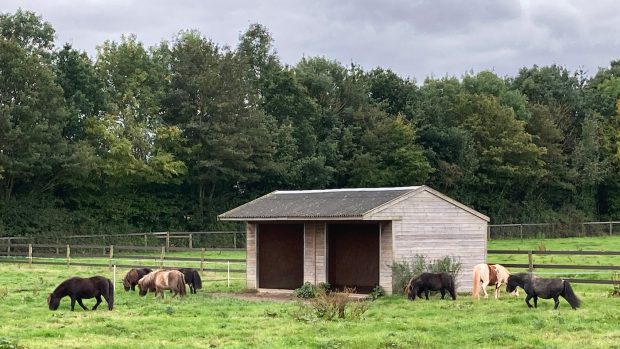As the general election campaign swings into action, the British Horse Society has published a manifesto to bring equestrian issues to the forefront of the political arena.
The manifesto was drawn up to ensure that the next government addresses areas where the horse industry is being held back, or where safety measures need a boost.
The economic, social and environmental contribution made by the horse industry is now widely accepted. Whilst much of the responsibility for the further development of the horse industry lies with the equestrian community itself, there are areas where the new government can and should help, explains BHS chairman Patrick Print.
Safety is the single most important issue to emerge from the manifesto recommendations. The BHS calls for the development of a joined-up network of bridleways and routes so walkers, riders and cyclists can have minimal contacts with road traffic. For the same reason, road management and development plans should take into account the needs of riders and carriage drivers. And, in an effort to boost the uptake of safety equipment, the government should make products such as hats, high-visibility clothing and body protectors exempt from VAT.
We dont want safety to be put out of reach of any rider because of costs, says the chief executive of the BHS, Graham Cory.
Safety provisions should extend to creating a regulatory framework for teaching and learning. For example, all riding instructors and people in the equestrian industry who care for a paying public should have a recognised qualification. Instructors should also hold adequate insurance to cope with potential problems.
The thorny issue of insurance and the huge costs it carries is another pillar of the BHS manifesto. Soaring premiums have forced a number of riding establishments to close over the last few years, so the society is urging the government to introduce new legislation, similar to the body of law currently found in many American states, which recognises equestrianism as a risky sport and therefore lessens the financial burden of insurance on the industry.
In most of the United States, legislation is in place which recognises riding horses as inherently risky, explains Cory. In other words, if you fall off, you wont be able to make a negligence case against a riding establishment. Presumably, this should apply to other sports too, although we are not arguing for them.
Public liability insurance costs have also shot up since the House of Lords ruled in the Mirvahedy v. Henley case in 2002 that the Animal Act should apply to damage or injury caused by horses. In Mirvaheady v. Henley, stallions broke out of a field and caused an accident. There was no suggestion that the field was not properly fenced and no suggestion that the [stallions] owners were negligent, but the owners had to pay huge damage. They hadnt done anything wrong, yet they were found against, says Cory. The BHS is asking to amend the law to ensure that horse owners are only held responsible for injury or damage caused by their animals if negligence is proven against them.
If insurance tops the industrys financial concerns, rating soon follows suit. The BHS condemns todays uneven rating policies, which can create a financial bias against up-and-running equestrian centres.
If a farmer is encouraged to diversify away from food production [and into equestrianism] with rating incentives, the existing equestrian establishment just down the road which pays full rates is having to compete on unfair ground, explains Cory.
As a result, the manifesto asks the government to ensure that all riding establishments are able to compete on equal terms, with no sub-sector enjoying rating advantages not available to the rest.
Another new and crippling cost the industry has to face is carcass disposal. Disposing of dead stock has become more expensive since the new Fallen Stock Scheme came into force last year and this could compromise equine welfare for example, owners may put off putting down a severely ill horse, or even be tempted to set it free on common land according to the BHS, which is calling for a review of the process.
Making the sport more universal is also high on the agenda. The BHS is recommending that the government use existing social inclusion funds to provide riding and caring activities for socially excluded members of society.
The BHS is involved in a number of pilot projects, one of which is in East London and has been providing riding and horse management for children who havent been doing very well at school and dont come from a prosperous background. There is ample evidence that involving these people with horses is beneficial, so it is entirely appropriate that government resources should be made available, says Cory.
Adequate financial incentive should also go to the many volunteers whose activity underpins every facet of the horse industry to ensure that they can obtain the appropriate training and qualifications to become officials.
Equestrianism could not function if not for the thousands of volunteers. We rely on their goodwill, says Cory. This is the year of the volunteer, so the government recognises they are important in many fields but they need to be trained. So either the volunteers have to pay for their training, or a body such as the BHS does, or they dont get trained which has safety implications or they dont do [the work]. We want the volunteers to be recognised and we want them to have access to training.
In an increasingly litigious society, the BHS would also like to protect volunteers from being taken to court. We dont want to find that, for some action taken in good faith, they are being sued. These sort of things can happen and we have evidence that they are dissuading people from doing [volunteer work], says Cory.
What we want is for whichever party that forms the new government to recognise the importance of the horse industry both in economic but also in social, health and educational terms. The manifesto is not going to solve all the problems, but it is a sign to the government that we are determined to advance the cause of equestrian issues and we are not going to give them any peace until they act accordingly.




